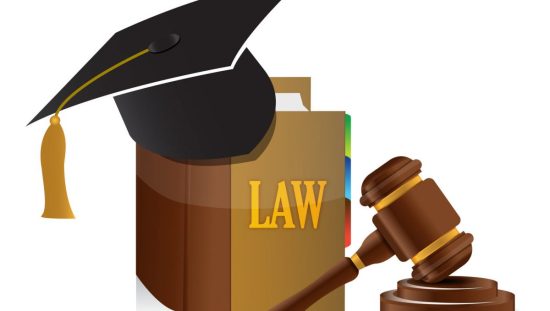(W.P. Ordinance XIV of 1960) [23 April 1960]
An Ordinance to constitute a Benevolent Fund for relief of Government servants and their families
Sections
- Short title, extent and commencement.
- Definitions.
- Fund.
- Utilization of the Fund.
- Accounts and audit.
- Constitution and powers of the Boards of Management.
- 6-A. Power to recover rents and lease moneys as arrears of land revenue.
- 6-B. Protection of action taken under this Ordinance.
- Power to make rules
Preamble. — WHEREAS it is expedient to constitute a Benevolent Fund for relief of Government servants and their families in the manner hereinafter appearing;
Now, THEREFORE, in pursuance of the Presidential Proclamation of the seventh day of October, 1958 and in exercise of all powers enabling him in that behalf, the Governor of West Pakistan is pleased to make and promulgate the following Ordinance:-
1. Short title, extent and commencement.
(1) This Ordinance may be called the [Punjab] Government Servants Benevolent Fund Ordinance, 1960.
(2) It shall apply to all Government servants, as hereinafter defined; provided that Government may, by notification, except any class of Government servants from the operation of this Ordinance.
(3) It shall come into force on such date as Government may, by notification, appoint.
2. Definitions.
In this Ordinance, unless the context otherwise requires, the following expressions shall have the meanings hereby respectively assigned to them, that is to say—
(a) “Family” in relation to a Government servant means his or her—
- Wife or wives or husband, as the case may be;
- Legitimate children and step children less than twelve years old;
- Legitimate children and step children not less than twelve years old, if residing with and wholly dependent upon him or her;
- Parents, sisters and minor brothers, if residing with and wholly dependent upon him or her.
(b) “Fund” means the fund constituted under this Ordinance;
(c) “Gazetted Government servant” means a Government servant holding a post declared to be a gazetted post by Government or any authority empowered by Government in this behalf;
(d) “Government” means the [Provincial Government of the Punjab];
(e) “Government servant” means
- a person who is a member of a civil service of the province; or
- a person who holds any civil post in connection with the affairs of the province, including a member of the Civil Service of Pakistan who has opted for the fund, but excluding any other servant of Pakistan;]
(f) “Non-gazetted Government servant” means a Government servant other than a gazetted Government servant;
(g) “Prescribed” means prescribed by rules made under this Ordinance.
3. Fund.
(1) As soon as may be, Government shall constitute a fund to be known as the [Punjab] Government Servants Benevolent Fund.
(2) The Fund shall be divided into two parts; Part I for gazetted Government servants and Part II, for non-gazetted Government servants.
(3) Each part of the Fund shall consist of—
- [Compulsory contributions recovered from] the Government servants at such rates as Government may, from time to time, prescribe;
- Such grants as may, from time to time, be made by Government;
- Other contributions and donations;
- Income from investments made under this Ordinance.
(4) The money credited to the Fund shall be held in such custody as may be prescribed.
4. Utilization of the Fund.
The Fund shall be utilized for—
(a) The relief of Government servants and their families by—
- Giving financial assistance to the families of deceased Government servants;
- Giving financial assistance to Government servants invalided out of service;
- Making special grants to Government servants in exceptional cases;
(b) Defraying expenditure incurred in respect of management of the Fund.
Explanation — The benefit admissible under this section will be in addition to the pensions, family pension or gratuities awarded under the rules regulating the conditions of service of Government servants.
5. Accounts and audit.
(1) All contributions [recovered] under clause (a) of sub-section (3) of section 3 shall be deducted at the source from the salaries of the Government servants concerned.
(2) The Accountant-General, [Punjab] shall be responsible for keeping the accounts of the Fund. Audit of the assets of and expenditure from the Fund will be conducted by such authority as may be prescribed.
6. Constitution and powers of the Boards of Management.
(1) As soon as may be, Government shall, in such manner as may be prescribed, constitute the following Boards of Management, namely:-
- the Provincial Board of Management (Gazetted);
- the Provincial Board of Management (Non-Gazetted);
- a District Board of Management for each District; and
- the Secretariat Board of Management.
(2) Subject to such directions as may be issued by Government and such rules as may be made in this behalf—
- the Provincial Board of Management (Gazetted) shall be responsible for management of Part I of the Fund and shall have the powers to invest money credited to that part of the Fund and to incur expenditure therefrom;
- the Provincial Board of Management (Non-Gazetted) shall be responsible for management of Part II of the Fund and shall have the powers to invest moneys credited to that part of the Fund and to make allocations therefrom to the [District] Boards of Management;
- a [District] Board of Management shall, subject to such directions as may be issued by the Provincial Board of Management (Non-Gazetted), deal with all matters connected with Part II of the Fund [except in so far as it concerns non-gazetted servants serving or employed in the [Punjab Secretariat],] and in particular shall have the power to sanction expenditure from the allocations made to it by that Board [and]
- the Secretariat Board of Management shall, subject to such directions as may be issued by the Provincial Board of Management (non-gazetted), deal with Part II of the Fund in so far as it concerns the non-gazetted Government servants serving or employed in the [Punjab Secretariat], and in particular shall have the power to sanction expenditure from the allocations made to it by that Board.
6-A. Power to recover rents and lease moneys as arrears of land revenue.
Any sum due as rent or lease-money in respect of property acquired or constructed by a Board of Management constituted under section 6 and the management whereof vests in any such Board, if not paid within thirty days of its having become due, may notwithstanding anything contained in any law, decree or order of any Court, agreement, deed or instrument, be recovered as arrears of land-revenue.
6-B. Protection of action taken under this Ordinance.
No suit, prosecution or other legal proceedings shall be instituted against a Board of Management constituted under section 6 or against any officer or servant of such Board for anything which is in good faith done or intended to be done under this Ordinance or the rules made thereunder.
7. Power to make rules.
Government may make rules for bringing into effect the provisions of this Ordinance.
OTHER RELATED POSTS



